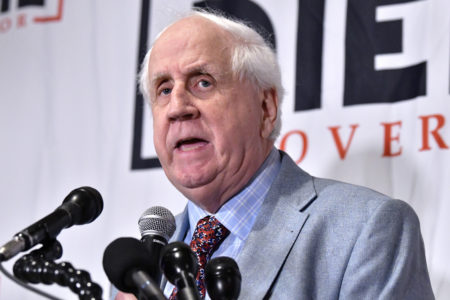Thirty-five percent.
If you are a Republican running for office against a Democrat in Massachusetts, that is the ceiling for your share of the votes – 35 percent. You may get less, but you will not get much more. For reasons that elude me, Republican activists in Massachusetts do not seem to understand this simple math.
They continue to promote candidates in their primaries who have no chance of winning more that 35 percent of the general-election vote. And when their candidates get soundly beaten, the GOP is left with no ability to affect policy or change the sea of blue that is our Commonwealth’s governmental structure.
So what can the Republican party in Massachusetts do? It starts with the GOP activists. They must ask themselves some hard questions – starting with, do we want to win general election races or not?
Winning election as a Republican in Massachusetts requires appealing to unenrolled voters (now more than 60 percent of the electorate, compared to less than 9 percent for registered Republicans). Many of these “unenrolled” subscribe to rational Republican views.
I have worked on many winning statewide Republican campaigns. I saw first-hand how those candidates appealed to a broader base than just party activists, and that out-reach led not only to their victories but paved the way for them to be effective leaders.
The message I preach is that campaigns are like startups. You must convince people to buy your product. If they don’t like your brand, the attributes of the product, they won’t buy it and you go out of business. It is that simple.
Right now, the MassGOP brand is teetering on the edge of extinction. And yes, we have been here before. In the late 80’s, the Party was in similar disarray, but there is one important difference between then and now. Leadership. When I started with the Party in the late 1980’s, there was a new chairman named Ray Shamie.
Ray was far more conservative than I was, as well as many of the candidates that he helped get elected.
But he was a businessperson and he knew what needed to be done to build a party and rebrand Taxachusetts to “Commonsense for the Commonwealth.” Under Ray’s leadership, we won a lot in the 1990’s. The difference was that Ray didn’t let his ego divide the party. He embraced differences, even when they took him outside of his comfort zone. He had a broader vision of the party than just himself and that made him an effective leader.
We created a brand that a MAJORITY of voters could support, far more than just 35 percent. He emboldened the underlying principle of a competitive economic environment that lifted many boats. He refused to allow social issues divide the party. He would not tolerate the type of bickering and name-calling that pervades state party politics these days.
It feels like 1987– the state Republican party is again in tatters. At the root of the problem is the current party leadership. Under the current chairman, the Mass GOP has degenerated into a bumbling, toxic circus. It is an embarrassment to all who have worked so hard for so many years in Republican politics.
During this past election cycle, I helped a young and promising Republican candidate in his race for the open (and usually Republican) First Middlesex state rep’s seat. Ultimately he lost in the general election by a razor-thin margin of seven votes. With even a little support from a functional state party, the outcome would likely have swung in his favor.
Instead, the chairman sat on his hands while the losing Republican primary candidate ran a silly write-in campaign which siphoned off more than 50 votes that would likely have gone to the Republican candidate on the ballot.
To ensure the defeat of the party’s endorsed (and viable) candidate, the parents of the state GOP finance chairman (a close ally of the current chairman) wrote a scathing letter to a local newspaper opposing their party’s own candidate.
The irony is that in that First Middlesex state rep’s race, the Mass GOP was more effective in defeating its own candidate than it was in electing any other candidates to office in any other race. If it were not so sad, it would be funny.
The state Republican party needs a rebrand and for that it needs new vision from a new leader. Or it will continue to be the party of 35 percent? And then the question the leadership will need to ask themselves will be, how do you raise money for candidates who are destined to receive no more than 35 percent of the vote?
(Beth Lindstrom was the first female executive director of the Massachusetts state Republican party.)


